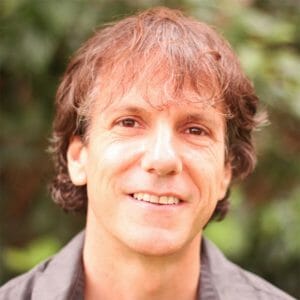PTSF 32 (with Will Hall)

b'
In today\\u2019s Solidarity Fridays episode, Joe and Kyle continue their conversation from last week with Will Hall: therapist, host of the Madness Radio podcast, author of Outside Mental Health: Voices and Visions of Madness, and previous psychiatric patient diagnosed with schizophrenia.
This week, Hall compares how the medical industry treats those seeking therapy and growth vs. how they treat the homeless and victims of sexual abuse, how the framework for mental disorders disrespects the individual, neoliberalism and why capitalism and the free market shouldn\\u2019t be the answer for everything, Grof\'s focus on etiology and why his model of spiritual emergence is problematic, the future of psychedelic advertising in a world where anything that can be sold will be sold, and the 3 biggest factors towards successful therapy.
And he focuses a lot on what we should be doing: creating and promoting individualized medicines and healing techniques over mass-produced Band-aid medicine, not reducing a difficult psychedelic experience to biology and instead focusing on getting to the root of what is causing the issue and working through it, not solely researching the effects of drugs, and most importantly, researching how people have bettered themselves without drugs- if the long-lasting effects of psychedelics and integration work are the catalyst for change, how can we get to those effects and integrations without the drug?
Notable Quotes
\\u201cDrugs are drugs. I don\\u2019t believe in psychedelic exceptionalism. I don\\u2019t believe in psychiatric drug exceptionalism. Drugs are drugs. There\\u2019s no exceptionalism for drugs. If they change your consciousness, they\\u2019re getting you high in one way or another, and that is what is either beneficial or nonbeneficial to you, based on your experience.\\u201d
\\u201cThe people who are having successful treatment with MDMA psychotherapy- they aren\\u2019t just reporting \\u2018oh, my depression is down;\\u2019 they\\u2019re reporting all these wonderful benefits of MDMA. Why should we wait until you have a diagnosis of PTSD to give access to MDMA [to someone] if they want to experience those benefits as well? The people who are having the experiences of psychedelics are not having the experiences of disease-treatment, they\\u2019re having the experiences of psychedelics, which can be, for many people, very positive. So why are we gate-keeping the access? And if we don\\u2019t gate-keep the access, then we have to admit that, actually, it\\u2019s not a disease treatment; it\\u2019s actually something that many people find beneficial and some people don\\u2019t.\\u201d
\\u201cWhat is the commitment? Is the commitment to get psychedelic drugs accessible at all costs? And we\\u2019re going to lie, cheat, and steal our way to get there? Or is the commitment to trust that truth is the way? And if we just stick with the truth, that is how we change society?\\u201d
\\u201cI think you\\u2019re onto it. I mean, this is the key thing- psychedelics, in the best of contexts, is the pathway towards that. So why not study that? Why not research that? Why not invest the resources to exploring how we can create contexts for that which you\\u2019ve just described- create more spaces in society for successful encounters and engagements with openness, deeper relatedness, developing more trust, learning to communicate better, learning to form better community bonds, learning to develop our loyalties for each other, overcome our traumas together, tell our stories, overcome our shame, find ways that we can accept each other and support each other? That\\u2019s what we should be researching. That\\u2019s what we should be investigating, not psychedelic treatments that might have the effect of this, because this is what we\\u2019re really after.\\u201d
Links
Outsidementalhealth.com (info on his book, Outside Mental Health: Voices and Visions of Madness)
The Heart and Soul of Change Project
Dreamshadow.com: Holotropic Breathwork, Personal Development, and Transpersonal Education
About Will Hall

Will is a counselor and facilitator working with individuals, couples, families and groups via phone and web video (Zoom). He has taught and consulted on mental health, trauma, psychosis, medications, domestic violence, conflict resolution, and organizational development in more than 30 countries, and has been widely featured in the media for his advocacy efforts around mental health care. His work and learning arose from his experiences of recovery from madness, and today he is passionate about new visions of mind and what it means to be human.
Support the show
- Patreon
- Leave us a review on Facebook\\xa0or iTunes
- Share us with your friends
- Join our Facebook group - Psychedelics Today group \\u2013 Find the others and create community.



